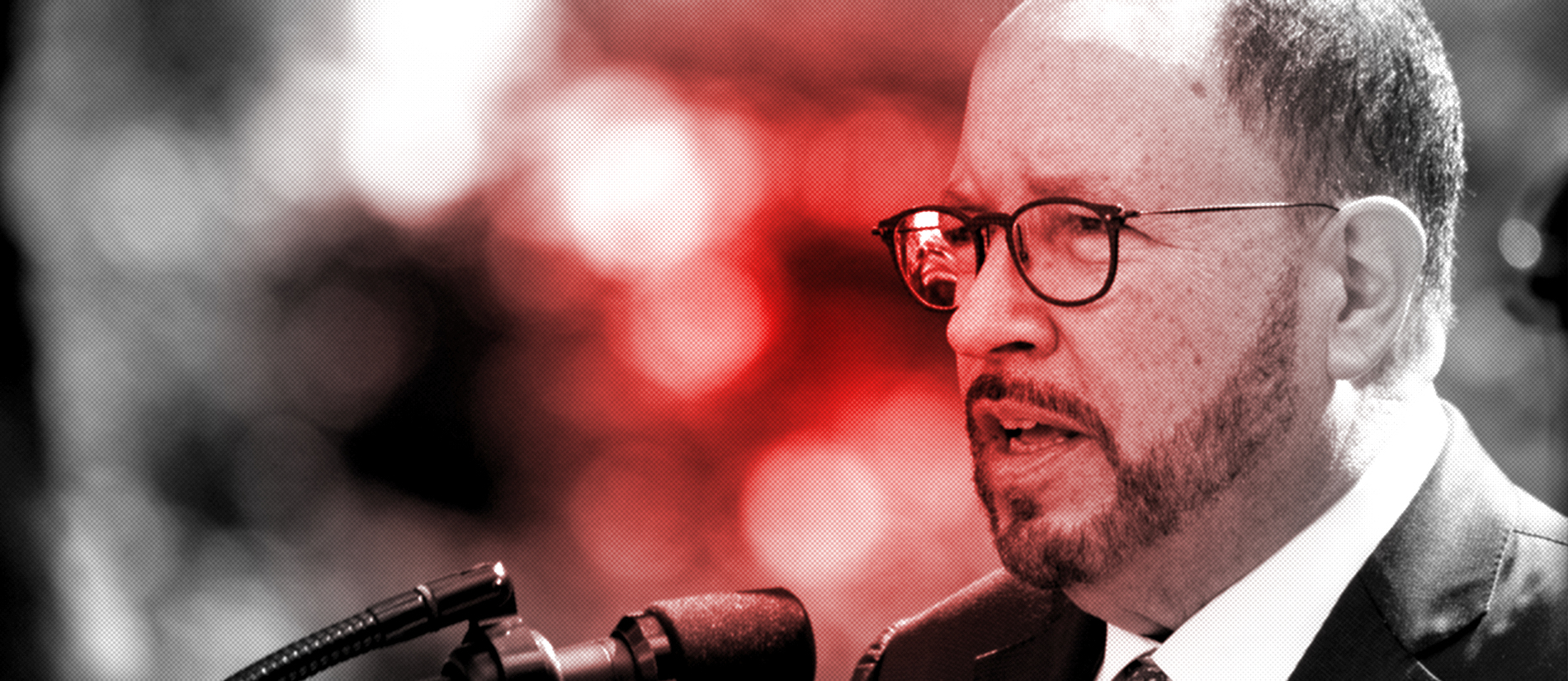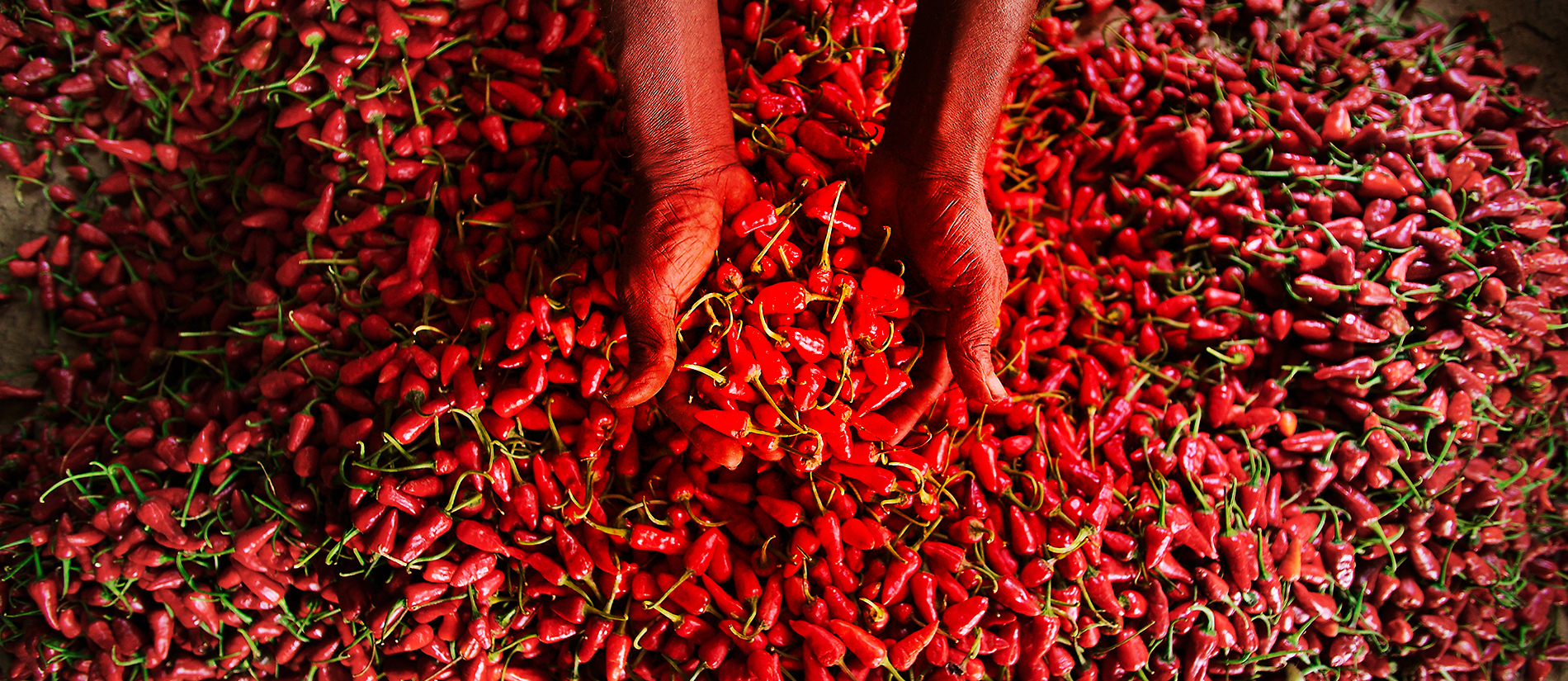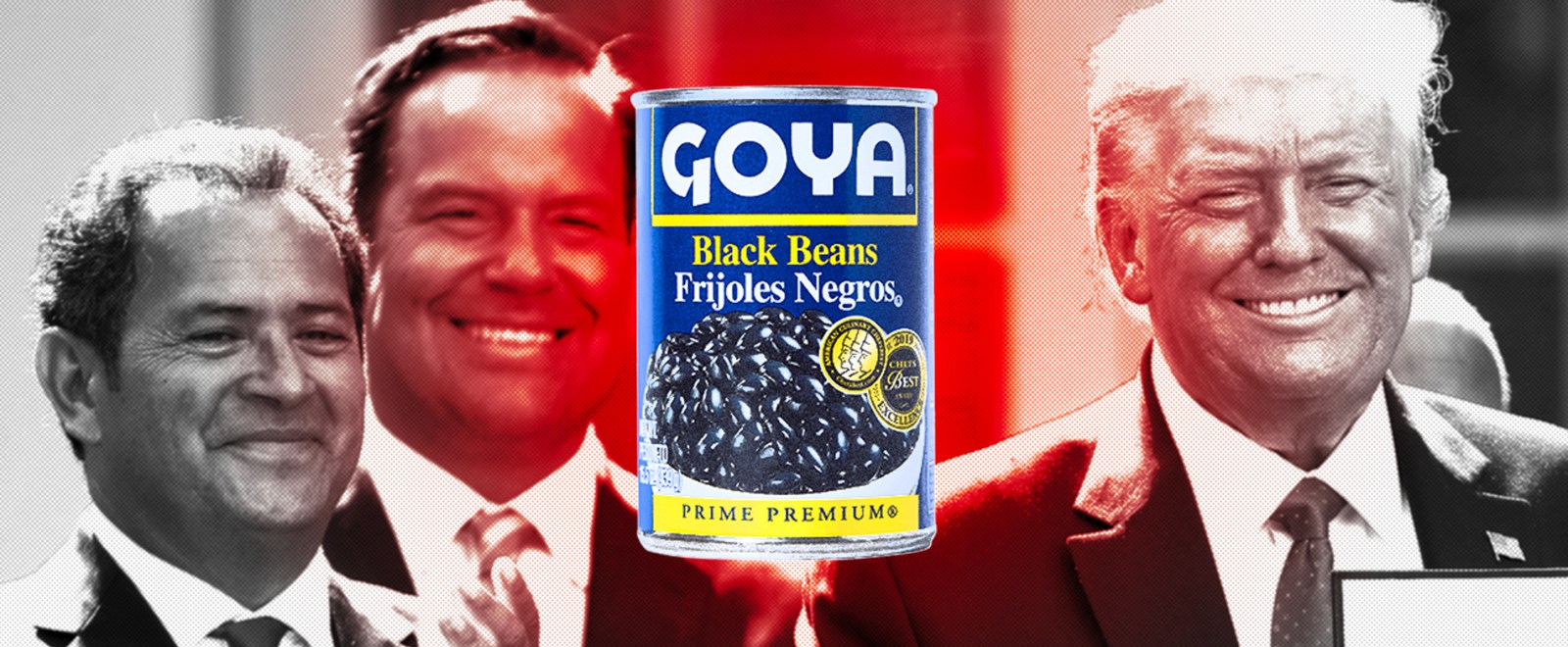The international food conglomerate Goya is dead to a lot of people on social media right now — #BoycottGoya has been trending since yesterday afternoon. Important voices in food are speaking up. Alexandria Ocasio-Cortez is cracking jokes about prepping her own adobo seasoning (have at it, it’s easy!). And, in the final stage of the cycle, the counterprotesters have started a hashtag of their own.
What’s all the drama about, you ask?
At the signing of the White House Hispanic Prosperity Initiative, the head of Goya, Bob Unanue, praised Donald Trump in a press conference on the White House lawn, saying, “We’re all truly blessed to have a leader like President Trump.” People began calling for the boycott shortly after the words escaped his mouth — naturally connecting Trump’s aggressive actions toward Mexican and Central American immigrants and his continued disdain for Puerto Rico with the fact that Goya sells food marketed directly to those communities.
Food-adjacent celebrities had thoughts.
FUUUUUUUCK. A shame. Don’t care how good the beans taste though. Bye bye. https://t.co/xV7U0UO8CY
— chrissy teigen (@chrissyteigen) July 10, 2020
As did former presidential hopeful Julian Castro.
.@GoyaFoods has been a staple of so many Latino households for generations.
Now their CEO, Bob Unanue, is praising a president who villainizes and maliciously attacks Latinos for political gain. Americans should think twice before buying their products. #Goyaway https://t.co/lZDQlK6TcU
— Julián Castro (@JulianCastro) July 9, 2020
Naturally, that was counterbalanced by calls to buy Goya products from the right. And there were plenty of “well, actually” tweets pointing to Goya’s thousands of employees and its charitable history. Plus those who noted that the brand had a similarly positive relationship with the Obama administration. A more productive branch of the conversation reminded people that you can buy these types of products from small-time and local operators instead of huge multi-national corps.
From that inciting incident and subsequent spin-out sprung plenty of questions. Should we all be boycotting Goya? Is there a company less aligned with aggressive actions against immigrants to buy these products from? Do Twitter boycotts actually work?
These are all valid angles to explore and we’ll get to them, but first a more pressing question: Does this surprise you? Because it probably shouldn’t. Not if you understand how colonization has shaped the North/ Central/ South American and Caribbean foodways. Not if you’re willing to look at the situation within a broader context of how mainstream food is produced and who profits from it.
Goya is a Spanish-American company. (You know Spain, right? The conquistadors?) And in that same spirit, the brand highjacked Indigenous American foods for colonial profits. It’s literally a tale as old as time. Prudencio Unanue Ortiz immigrated from Spain to Puerto Rico then New York and founded Goya in New Jersy in 1936. In the beginning, it was focused on importing Spanish olives and olive oil to the New York City marketplace. Eventually, the company turned to Indigenous ingredients like beans, corn, chiles, and spice mixes that were popular across the Caribbean, Mexican, and Central American diasporas. Three generations later, the Unanue family operates a billion-dollar enterprise peddling beans, masa, and sauces, among other products. They still import Spanish products but they’re far better known in the U.S. for their beans and spice mixes.
This makes Goya the epitome of colonial erasure of Indigenous food culture by colonialists hailing from Spain — one of history’s most vicious colonial perpetrators. While it’s easy to understand the brand’s importance to the Latin-descended people of the Americas (and their frustrations with the company’s praise of Trump*), the deeply colonial attributes of the whole situation should also be noted.
*Though they tend to align with whoever is in power, the Unanue family is known for it’s GOP allegiance. Andy Unanue, who also works in the conglomerate food world and is Bob’s brother, toyed with running for Congress as a Republican back in 2008. And neither Unanue has ever hidden their support for Trump or the Republican party — both of which have continually fought to suck wealth from Indigenous communities via various pipeline projects.

For what it’s worth, #Boycott (insert brand name here) initiatives have been shown to have little effect. Studies of these online actions have indicated that when it comes to revenues, social media brouhaha rarely has any impact on the bottom line of a company this big. In part, that’s due to the fact that most of the people tweeting about this today won’t be tweeting about it tomorrow. And while it’s easy to make your own adobo mix, it’s even easier just to buy it when no one’s looking. Controversies die and consumer memory is short.
What this story does speak to is the blindspot people seem to have around these foods, their histories, and who is profiting off them. Companies like Goya are colonial, capitalist multi-national brands that commodify Indigenous products from the Americas and give nothing back to the Indigenous people who often grow and harvest those same products (or even pay respect to the food cultures that birthed them). Even companies like La Costeña, a Spanish-Mexican company, trade in colonial ideals by selling off Indigenous foods to the wider market. In La Costeña’s case, they control 69 percent of the world’s chili market. Chili is an Indigenous American staple, shared with the world. There’s no evidence online of La Costeña offering targeted support of Indigenous communities. Their charity programs pretty much stick to earthquake relief and children rehabilitation centers in Mexico City (both very valid in the broader scheme of things, of course).
This matters because the Indigenous peoples of what is now Mexico live in some of the worst poverty in the Americas and still deal with serious discrimination from the near majority European-descended populace. Spain and Portugal were and still are European colonial powers. Their descendants still rule in places from Argentina to Brazil to Cuba to Mexico to the United States. And colonizers — like the Goya/Unanue family — are still actively funneling money away from Indigenous communities and leaving them in abject poverty while they become billionaires off of traditional foods.
So yes, you can/ should be pissed off at Goya and La Costeña and any colonial company hoarding the wealth of chilis (a billion dollar a year industry), vegetables, or spices grown on Indigenous land. It’s a legitimate frustration, even on the days Goya’s CEO doesn’t praise the president.

Lost in the Twitterness of all this is the White House Hispanic Prosperity Initiative itself. Jovita Carranza, an administrator of the U.S. Small Business Administration, broke it down in the Miami Herald as “a coalition designed to help Hispanic Americans reach their dreams through innovative educational and career pathways.” In short, that means the SBA is setting aside money to ensure people in the Hispanic community in the U.S. have access to small business loans to start-up companies.
It’s an entrepreneur booster for low-income families who live marginalized lives in the U.S. a narrative that was almost entirely obscured by the din of the #BoycottGoya talk. (Thankfully, while many pieces of the conversation were lost, people did urge boycotters not to throw food away, but rather donate it to food banks.)
So with the social media fury already burning out, where to next?
Well, if you want to be part of broader systemic change, make the extra effort to buy these food products from Indigenous producers directly instead of huge multi-national colonial corporations. We don’t need European colonial companies like Goya sifting those profits away from some of the most vulnerable people on Earth while shipping worldwide and making an outsized carbon footprint. You can always buy Puerto Rican spices from non-conglomerate owned Puerto Rican producers. Or buy your beans from the Indigenous folks who are actually growing them. And if you just can’t bear the weight of that inconvenience, pressure Goya and other brands profiting off of Indigenous ingredients and techniques to include Indigenous communities in their charitable initiatives.
Conversations about food have both deepened and broadened over the past few years, particularly in recent months. The time is ripe to ask ourselves tough questions about what we eat, who profits from it, what that means, and how our purchasing affects the planet and the people (particularly the most vulnerable people) living on it. None of it is quite as easy to wrestle with as a Twitter boycott, but it’s far more significant in the long run.

